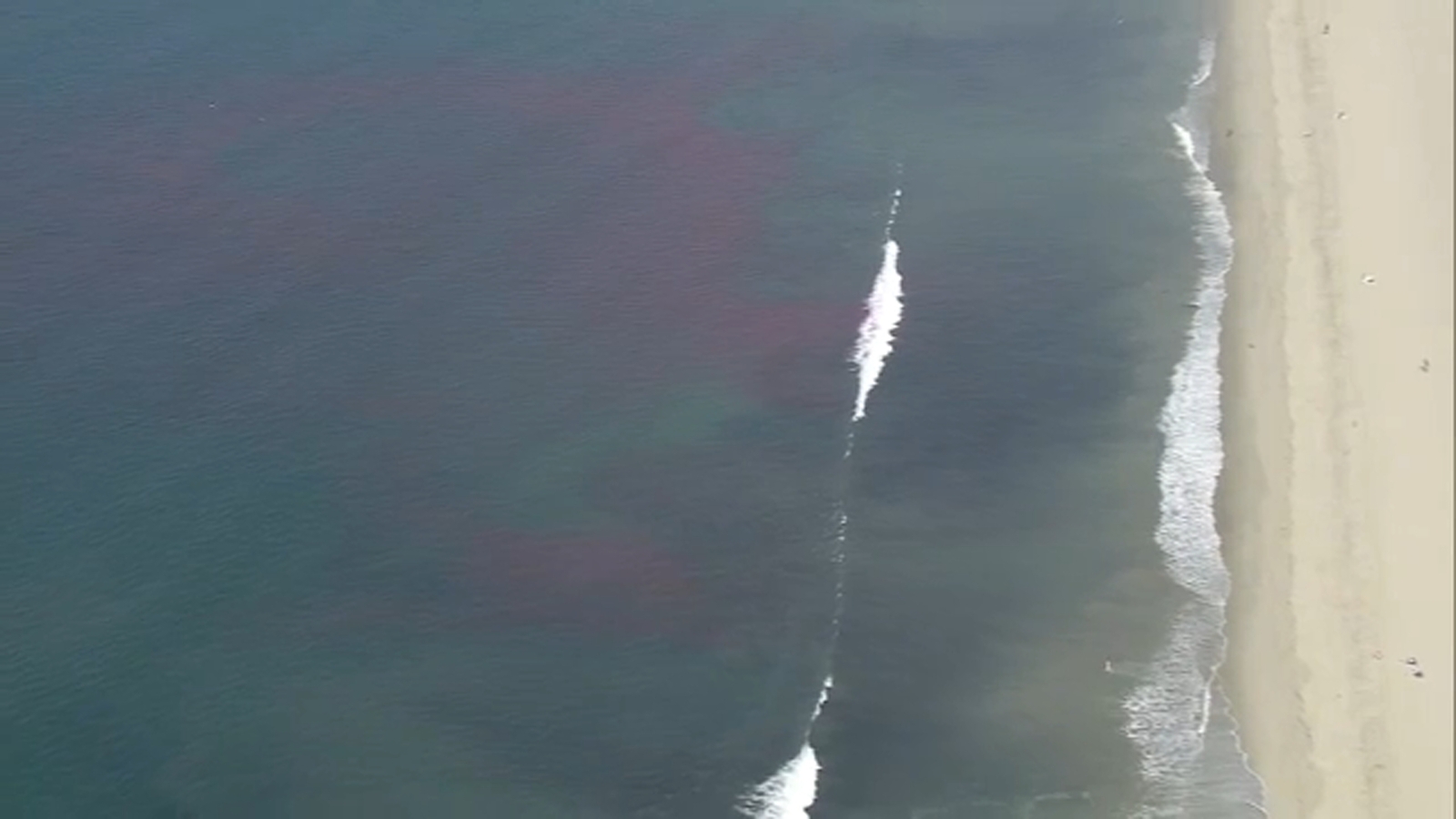Why was the ocean near Santa Monica Pier dyed pink? Scientists are studying currents, breakwater

SANTA MONICA, Calif. (KABC) — If you’re out near the Santa Monica Pier, you may notice parts of the ocean looking a little pink. Don’t worry, it’s all in the name of science.
It’s a chemical called rhodamine. Ten gallons of the non-toxic dye were dumped in the ocean by scientists to help study water quality.
“The dye is absolutely nontoxic. It’s safe for human exposure, as well as wildlife,” said Tom Ford, CEO of the Bay Foundation.
The UCLA Coastal Flood Lab and the Bay Foundation are studying water circulation, currents and the breakwater.
“It’s very hard to see some of those currents. You put the dye in it, we can see that visually,” Ford said.
Some beachgoers who came to check out the pink were slightly disappointed by the view.
“I thought it could be maybe a little psychedelic for all of the locals,” said Santa Monica resident Mona Rifian. “So I was hoping we could see the North Shore turn pink, but I’ll give it a few more minutes, then walk back.”
“Yeah, the dye has been moving away from us and northward along the beach. I don’t know where it’s going to go next,” Ford said.
Researchers ensure that the equipment underwater is doing its job.
“We have a lot of instrumentation in the ocean out here that is measuring that dye far more specifically, or better than our naked eye would be able to discern,” Ford said.
So why is the study so important? The data takes a look at water quality, and also whether the breakwater needs to be adjusted or built back up to protect the beloved Santa Monica Pier.
“Everybody knows, don’t swim or surf right by the pier or by certain water drains,” Rifian said.
“So, the pier is the heartbeat of this city,” said Santa Monica Mayor Lana Negrete. “Yes, it is at risk of one big wave attacking it and maybe making it not as sturdy.”
“Millions of visitors come down here, perhaps for their first time ever seeing the ocean. We want to make sure that that experience persists into the future for decades to come,” Ford said.



